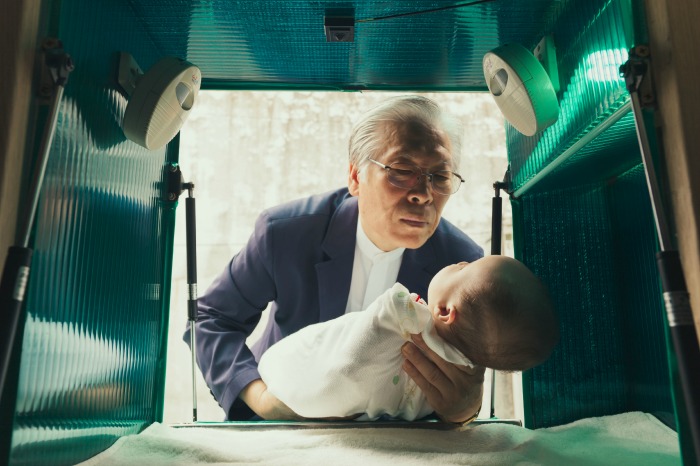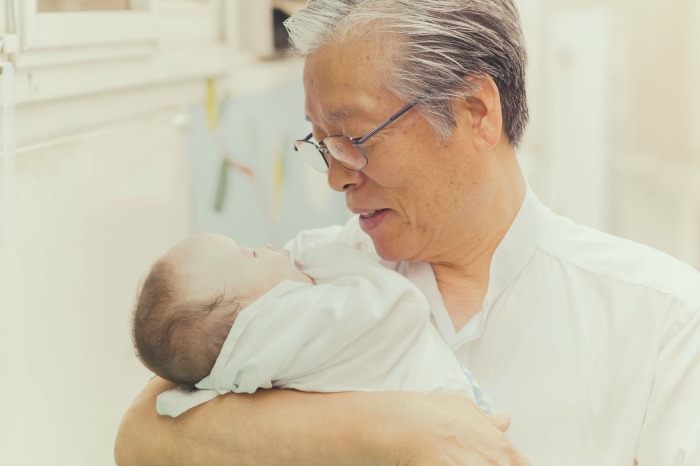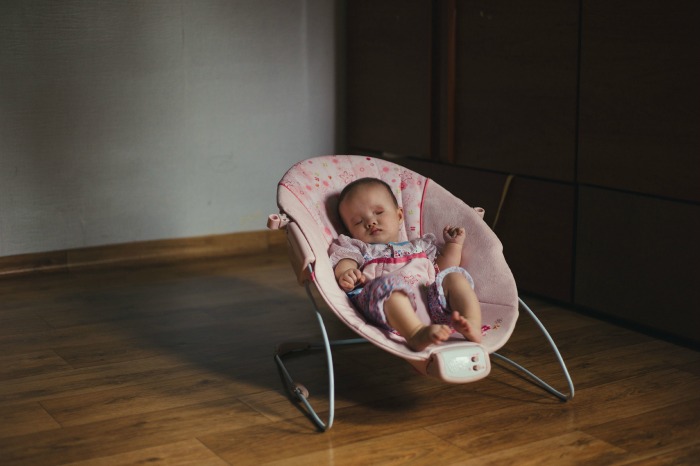In December 2009, a Korean pastor built a box in the wall of his home. It had two doors—one on the outside and one on the inside—and a motion sensor and an alarm. A few days later, the alarm rang. Pastor Lee Jong-rak found a baby inside the drop box—the first of hundreds of babies who would be left there by mothers who couldn’t take care of them.
The Drop Box is a stirring documentary about Pastor Lee Jong-rak’s efforts to save babies who would otherwise be abandoned in the streets of South Korea. Pregnancy out of wedlock carries huge scorn there, as does physical disability, so babies born in those situations or with problems are often left outside to die after birth.
Pastor Lee’s own son, Eun-man, has cerebral palsy. He was born requiring major surgery to save his life, yet still requires immense care and cannot speak or feed himself. Lee and his wife and daughter spent the first fourteen years of Eun-man’s life living in the hospital with him, where Lee gained a reputation for his compassion for the unlovable. He adopted a couple orphans from the hospital. Then a baby was left outside Pastor Lee’s door, almost freezing to death before he found her. That was the beginning of the drop box.
I knew I would cry watching this film. I didn’t expect to smile. And yet there were many moments in the film when I couldn’t help smiling. In one part of the movie, Pastor Lee asks Eun-man to smile for the camera, and after a brief second, a smile lights his face—and mine. One of Pastor Lee’s adopted sons is missing several fingers, yet he’s so bouncy and full of life as he tells his story:
“He struggled against his fear of rejection and ran for class president in his elementary school. To his great surprise, he was elected twice! He asked his classmates why they voted for him, despite being disabled. ‘Because you’re good at sports and everything else,’ they said, and from then on his memories of being teased and rejected melted away. When he grows up, he wants to take over his father’s work in caring for abandoned babies and children, so all his father’s work isn’t lost, and so he can do more good. The maturity of this child!” ~ Anna of Just East of Crazyland
The film’s director, Brian Ivie, was a student at the University of Southern California when he saw a newspaper article about Pastor’s Lee’s box. Such a thing shouldn’t exist, he thought, but as he read it again, he realized that if he didn’t do something, everyone would forget the story. Ivie and his co-producers contacted Pastor Lee, raised the funds they needed, and headed to Seoul to film the story.
During filming, Ivie actually became a Christian. In an interview with Focus on the Family, he said, “I saw all these kids come through the drop box—it was like a flash from heaven. Just like these kids with disabilities had crooked bodies, I have a crooked soul. And God loves me still.” Ivie and his co-producers have now founded Kindred Image, an organization that is working to continue Pastor Lee’s work in South Korea.
The Drop Box is coming to select theatres next week. In Canada, it is playing for two nights only (March 4-5) and in the States for three nights (March 3-5). To buy tickets, view the trailer or find a theatre near you, drop by the website.
I heartily recommend seeing this movie. When I first heard of it, I shook my head at South Korea for allowing such a thing to happen. As we began watching the movie, however, my husband commented that leaving babies at churches is not a new idea—unwanted babies were often left at churches, convents or monasteries during the Middle Ages (like The Hunchback of Notre Dame). As the movie continued, it was mentioned that Pastor Lee’s drop box was inspired by similar boxes in Sochi, Russia; Japan; and in eastern Europe. Again, it made me cry to think that we live in a world that kills unwanted babies, both before and after they are born.
I was able to watch a special pre-screening of the movie thanks to Graf-Martin Communications; all opinions expressed are my own.





No Responses Yet